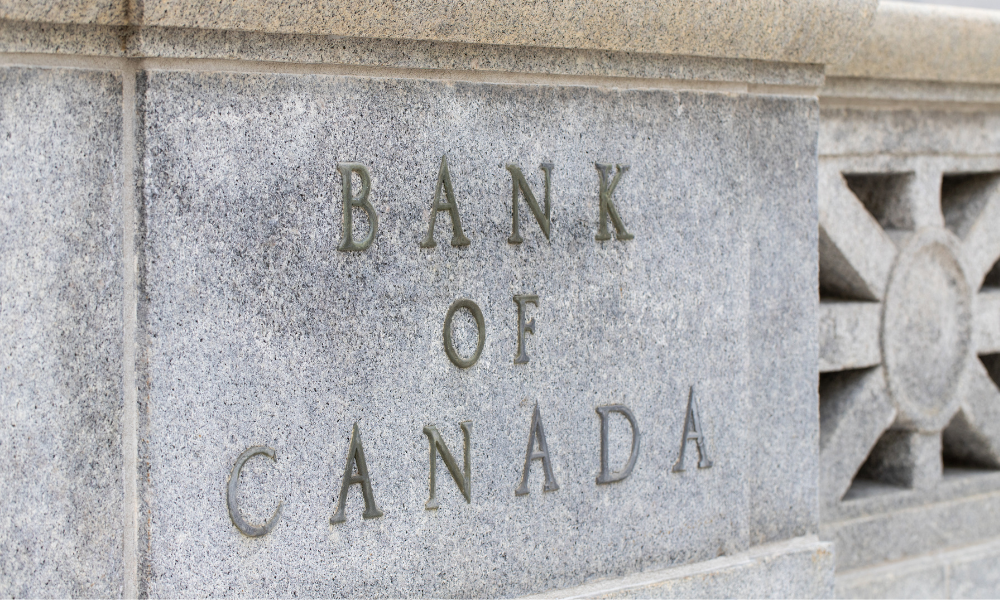Investment strategist casts his eye over real estate and crypto, and explains how to identify a potential bubble

Whether it’s cryptocurrency, real estate or the surge in tech stocks like Tesla, the prospect of a painful asset bubble looms large.
Unfortunately, unless you have a crystal ball, there’s only one way to identify such a bubble for sure - and that’s when it bursts. Vanguard believes that a bubble is an instance of prices far exceeding an asset’s fundamental value, to the point that no plausible future income scenario can justify the price, which ultimately corrects. It's a definition informed by academic research dating from the start of this century, before the infamous dot-com crash.
Bilal Hasanjee, Senior Investment Strategist, Vanguard Investments Canada, spoke with WP about what these bubbles might look like to an investor and how it relates to the current market.
How do you know it’s an asset bubble?
In short, it’s difficult. Looking back on history is easy because you can see when the bubble burst. But Hasanjee pointed to empirical research that suggested assets whose prices more than double over a short period of time between one to three years are twice as likely to double again in a similar timeframe.
As much as they are expected to double in the timeframe, there is also the probability of them losing half of their value in the same timeframe. It’s tough to time and know exactly when and where's a bubble but he said there are tools to compare evaluation matrices to historical averages to see whether an asset is in a bubble state.
Classic past examples
Hasanjee explained: “A classic example that's relevant to today's scenario, in my opinion, would be Japan's real estate and stock market bubble in the 1980s. At that time, the yen surged more than 50% in the early 80s, which essentially instigated a Japanese recession in 1986. In order to count it, the government introduced fiscal and monetary stimulus program, similar to what we saw in the aftermath of the pandemic.
“The plan was successful but it also encouraged rampant speculation that tripled the Japanese stocks and real estate in a short span of three years between 1986 to 1989. The bubble burst in 1991, which eventually resulted in a prolonged deflation and economic stagnation that is also known as ‘The Lost Decade’.”
A more recent example that may also be relevant to today’s scenario is the dotcom bubble burst of the 90s and early 200s.
What should investors be wary of right now?
From a Canadian investor's perspective, Hasanjee said the Bank of Canada is seeing “worrying signs” around people leveraging too much debt to buy residential real estate at the current elevated prices. National real estate prices have jumped about 20% March to March.
The prices-to-disposable-income ratio remains elevated, and is among the highest in the world, while Canadian house prices have grown the fastest among the G7 plus Australia over the past year. The closest to Canada is the UK, which increased 7%, December to December, with Canada's prices rising 15% over the same period.
Hasanjee said: “Macro indicators on the Canadian housing market such as debt ratios and fixed investment are at or approaching levels that have caused concerns for regulators.”
How do advisors deal with questions over potential bubbles like crypto?
Cryptocurrencies have risen more than 500% in the past year alone, which has raised eyebrows, questions, and, let’s be honest, assets. Hasanjee said the questions should centre around whether this increase is suitable for an asset that is not designed to produce an income stream or cash flows, and whose price growth closely resembles that of large-cap growth stocks.
He said: “This is in contrast to what one would expect from an instrument that was by design supposed to provide a hedge against inflation and currency devaluations. Investors can disagree on cryptocurrencies and fundamental value but such discussions today may have to include talk of bubbles.”
Advisors, therefore, have to think in terms of their clients’ long-term investment goals and whether an asset like a cryptocurrency or a SPAC is going to help them achieve those goals and match their risk tolerance. Hasanjee added that if 90% of a client’s net worth is tied up in Canadian real estate, it may not be an optimal decision from a portfolio management perspective.
“I would like to anchor to our long-term balanced portfolio approach of matching your portfolio to your goals. Having said that, housing is a necessity, so beyond that, an investor should always look at her or his portfolio as a whole, and see if it matches their long-term retirement and other goals.”
He added: “We always advise you cannot time the market, you cannot control the market, but you can control your asset allocation, diversification and last but not least, your costs.
“So cryptocurrencies, real estate, SPACs all of them entail very high investment costs, along with the risk of price correction, volatility and ensuing liquidity crunch when the prices correct. No matter the market situation, Vanguard's tried and tested investment principles remain the same – set appropriate investment goals, develop a suitable asset allocation using broadly diversified low-cost funds, and maintain a long-term perspective and a long-term discipline. In in few words, stay the course.”



